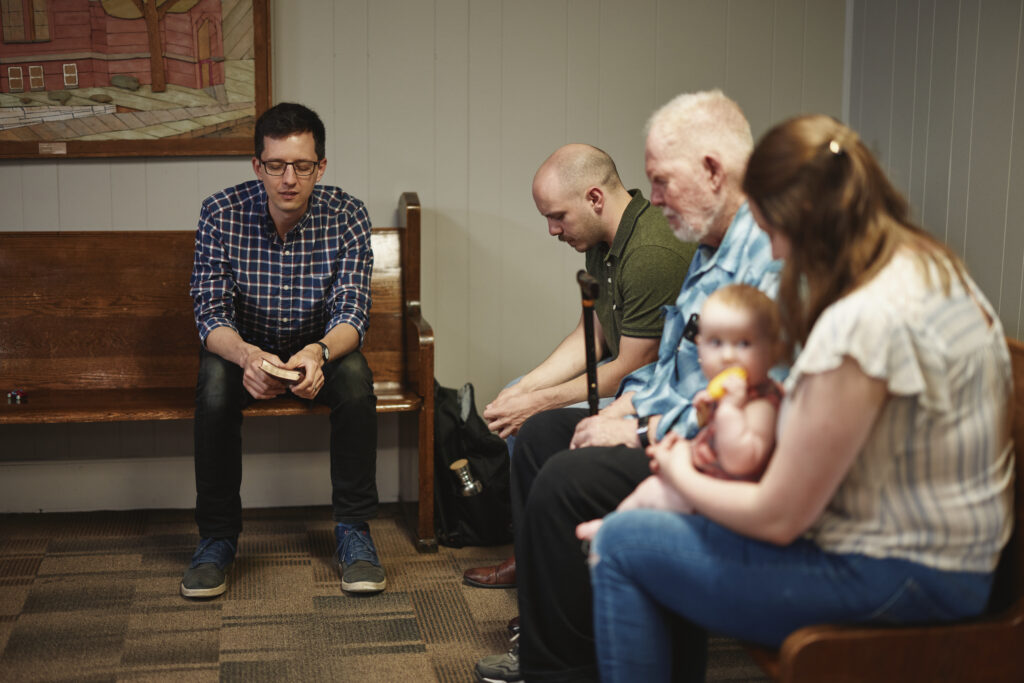God is raising up faithful leaders and churches who are embracing simplicity—not out of limitation, but out of conviction. Covocational church strategies aren’t shortcuts or compromises; they are strategic choices to steward time, gifting, and resources for Kingdom impact. The covocational church, where I serve as one of the Elders, has strong ecclesiology, practices meaningful membership, and is on mission in the community and world. We have no full-time staff, a membership below 150, and a budget of less than $250,000. These realities have not stopped our church from planting churches, giving to missions, and sending out missionaries in a significant way for a church our size. Our model has been instrumental in allowing us to have kingdom impact despite our size and resources.
10 Realities
Here are 10 realities we review with our staff and leadership each year that convey what it means to be part of a covocational church:
- Determine to have realistic expectations. This determines your level of joy.
Because we don’t have full-time staff, there must be a foundation of realistic expectations. The covocational model means there are tasks and ministry efforts that might not be accomplished as professionally or as timely as in a fully staffed church. Setting clear expectations in the church body is critical. Unrealistic expectations can lead to bitterness and steal our joy. Communicate regularly to your church and team the reality of covocational church ministry.
- Embrace relationships over programs.
This is a radical shift in a culture where people often choose a church based on its programs. The covocational church model will have fewer programs and lean heavily into relational ministry and discipleship. Relationships are essential in the New Testament—with over 100 “one another” passages—making it clear that being in community and doing ministry together is the biblical pattern. Help your church family cultivate meaningful relationships built on shared selflessness, not consumerism.
- Be content with base hit sermons. Don’t expect home runs every Sunday.
Faithful, Christ-centered exposition is the goal. Most covocational pastors balance multiple roles, and preparation time is often limited. Don’t let the pressure of hitting a grand slam every week derail you from faithfully preparing, praying, and delivering the Word. If the Word is rightly divided and Christ is exalted, it’s a win. Consistency over time bears fruit. Base hits edify the church and move the mission forward.
- Realize there will always be more to do—take initiative or offer solutions.
You will either develop a critical spirit or become a constructive solution-giver. There will be gaps in ministry that will drive you crazy. Instead of being critical, look for solutions. Covocational church ministry is a team effort, and teams thrive when people lead with initiative and grace.
- Build teams. Equip and empower others.
Ephesians 4 reminds us that leaders exist to equip the saints for ministry. A healthy church depends on a culture of equipping and empowering. Years ago, I came across a leadership article that said, “stop using the word delegate—become a person who empowers!” That quote was transformational for me. Empowerment carries a different meaning and weight than delegation. Delegation assigns tasks; empowerment raises leaders. Train others to lead and release them with trust—that is empowerment.
- Be a grace-giver and a quick forgiver.
Because ministry needs never stop and vocational work responsibilities are ever-present, it’s easy for tensions and comparisons to find a foothold. Practicing grace isn’t optional—it’s essential. Forgive quickly. Assume the best. Don’t let small offenses grow into division. A culture of grace builds trust, unity, and a gospel-shaped community.
- Submit to the elders as shepherds for your soul—authoritarian vs. authority.
Elders aren’t here for control, but for care. Hebrews 13:17 calls us to submit to godly leadership—not because they are perfect, but because they are accountable before God for your soul. This is spiritual authority, not authoritarianism. Christ-like, humble elders are a gift to the church. Realize God has raised them up to help shepherd and care for the flock.
- Embrace your context.
Every context has challenges to navigate. Our city is a very transitional city. On average, we lose a third of our church every three years. That means our focus must stay on equipping, sending, and multiplying. We realize people may be here for a short time. Is it discouraging and sad at times? Absolutely. But we are called to live sent as God’s people, so we embrace the transient nature of our city and steward it for gospel advancement. We like to say we have a culture of development that leads to deployment.
- Communication is key!
In a team-based, covocational model, clear and personal communication is everything. We hold once-a-month staff meetings, which means we must work hard to communicate with one another during the week. Cultivating good systems and rhythms for communication is key to staying unified and mission-focused.
- Excellence isn’t a value, but mediocrity isn’t glorifying.
Do things well for the glory of God. We’re not chasing perfection—but we’re not making excuses either. Whatever we do, we do for the glory of God (1 Cor. 10:31). Whether it’s preaching, leading a meeting, setting up chairs, or writing curriculum—give your best. Faithful stewardship honors Christ.
The covocational church model may not appear flashy or impressive by worldly standards—but it is deeply faithful, sustainable, and effective when rooted in biblical convictions and gospel purpose. It requires humility, clarity, teamwork, and perseverance. But the reward is great: a church that is formed by grace, committed to mission, and shaped by simplicity. May we steward our time, resources, and callings with joy as we labor for Christ and His Kingdom.
Published October 20, 2025
